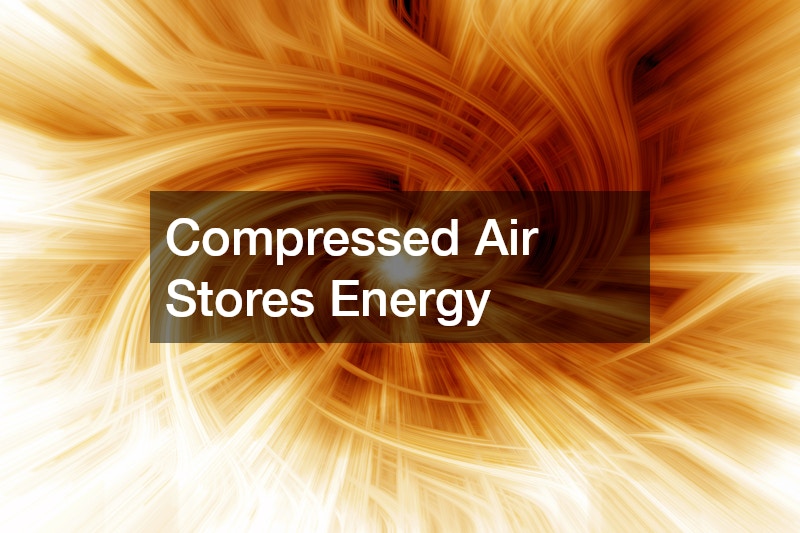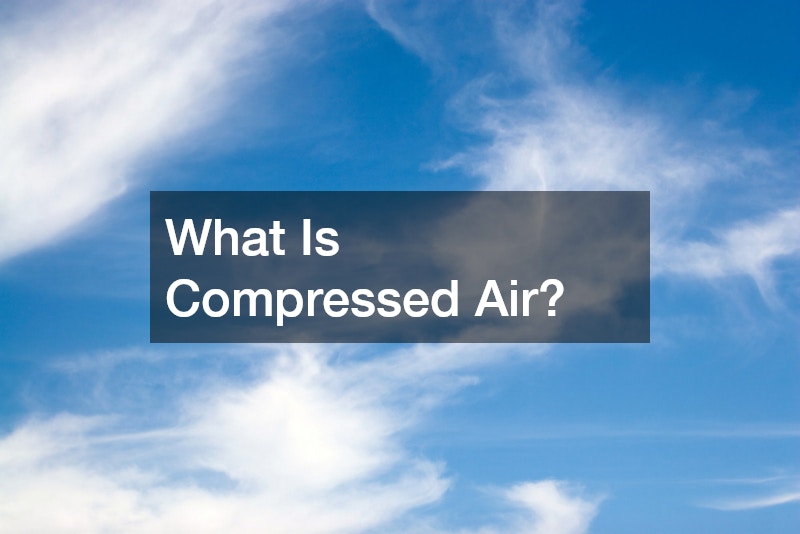
Compressed air is a versatile and essential source of power used across many industries, from manufacturing to healthcare. It plays a critical role in the operation of various machinery, tools, and processes. But what exactly is compressed air, and how does it function?
In simple terms, compressed air is air that is stored at a pressure greater than atmospheric pressure. It is produced by forcing air into a container or a system using mechanical means. As the air is compressed, the molecules are packed closer together, increasing the air’s pressure and storing energy.
When released, the compressed air can be used to power tools, move objects, and perform a variety of other tasks.
How Is Compressed Air Made?
The process of making compressed air starts with a compressor, a machine that converts mechanical energy into air pressure. Compressors are designed to increase the pressure of the air by reducing its volume. There are several types of compressors used in different applications, but they all share a similar principle of operation.
Piston Compressors: These are similar to the engine in a car and are often used for smaller systems or for applications requiring high pressure.
Rotary Screw Compressors: These compressors use two interlocking screws to compress the air. They are commonly used in industrial applications because they can produce a continuous flow of compressed air.
Centrifugal Compressors: These compressors use high-speed rotating impellers to accelerate air and then slow it down, which increases the pressure. They are typically used in large-scale applications, like power plants and large industrial operations.
The compressor draws in ambient air, which is then compressed and stored in a tank. The compressed air is usually cooled to remove moisture, as moisture can cause damage to equipment and reduce the efficiency of the air. Once the air is compressed and filtered, it is ready to be released for use.
Why Is Compressed Air Important?
Compressed air is crucial because of its ability to store energy. Unlike electricity or hydraulics, compressed air can be stored in tanks and used later. This makes it a highly versatile power source for systems that require intermittent power or that need to run off-the-grid. It’s also easy to distribute across a facility through piping systems.
There are several reasons why compressed air is so widely used:
Versatility: Compressed air can power tools, machines, and equipment in a variety of industries.
Safety: Unlike electrical systems, compressed air systems do not pose the risk of sparks or electrocution. This makes compressed air a safer option in hazardous environments.
Convenience: It’s easy to store and transport compressed air, which allows it to be used in remote locations where other forms of power might not be feasible.
Common Uses of Compressed Air
Compressed air is an invaluable resource across many industries and sectors. Some of the most common uses include:
Manufacturing and Production Lines: Compressed air is widely used in assembly lines and production facilities. Pneumatic tools, such as drills, grinders, and wrenches, are often powered by compressed air. These tools are lighter and more durable than their electric counterparts, making them ideal for repetitive tasks.
Transportation: In industries like mining and construction, compressed air is used for air brakes, engines, and pneumatic conveyance systems that move materials through pipes.
HVAC Systems: Compressed air is used in heating, ventilation, and air conditioning systems, particularly in the maintenance and cleaning of systems. It can be used to power air blowers or to test the integrity of systems.
Food and Beverage Processing: In the food industry, compressed air is used in bottling plants, food packaging, and cleaning systems. The air used in food applications must meet strict quality standards, as it must be free of contaminants.
Medical Applications: Compressed air plays a vital role in medical equipment, such as ventilators and anesthesia machines. It is also used for powering pneumatic tools in dental offices and hospitals.
Cleaning and Blowing Off Debris: Compressed air is commonly used for cleaning purposes in industrial settings. It’s used to blow off dust and debris from surfaces, machinery, or products before they are processed further.
Advantages of Compressed Air
There are numerous advantages to using compressed air in industrial and commercial applications:
Clean and Safe Power Source: Compressed air systems are safe, particularly in environments where the risk of fire or electrical shock is a concern. Air can be used to power machines and tools without creating sparks or heat.
Maintenance and Durability: Compressed air systems are relatively low maintenance, especially when compared to other systems like electric motors. Pneumatic equipment tends to have fewer moving parts, which can reduce wear and tear and increase longevity.
Energy Storage: Compressed air can be stored and used later, making it a reliable power source when electricity may not be available or if there is a need for backup power.
Environmental Impact: Compressed air systems do not pollute the environment when compared to some electrical or hydraulic systems that may leak oils or fluids. Compressed air systems rely on clean, dry air.
Watch the video above to learn more about compressed air solutions!
.

